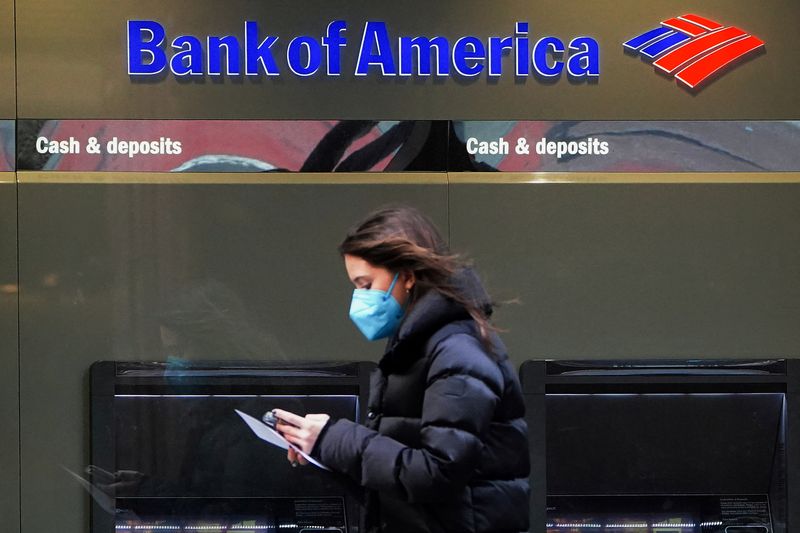This post was originally published on this site
https://i-invdn-com.investing.com/trkd-images/LYNXMPEJ2K0F6_L.jpg
The steep drop partially reversed the nearly 30% rally in the stock during regular trade.
The government could play a role in taking out assets that have eroded First Republic’s balance sheet, Bloomberg reported, citing people with knowledge of discussions between Wall Street CEOs and U.S. officials.
In addition, First Republic has tapped investment bank Lazard (NYSE:LAZ) Ltd to help it explore strategic options, the Wall Street Journal reported, citing people familiar with the matter.
First Republic declined to comment about the reports by Bloomberg and the Wall Street Journal.
Potential government backing in a deal to save First National could involve conditions at the expense of the bank’s shareholders, said Dennis Dick, a trader at Triple D Trading in Ontario, Canada.
“People just get nervous that if the government steps in there’s going to be nothing left for shareholders,” Dick said. “There’s just a lot of nervousness in this sector.”
The bank is looking at ways to downsize if its attempts to raise new capital fail, sources told Reuters earlier on Tuesday.
First Republic is examining how it can sell parts of its business, including some of its loan book, in a bid to raise cash and cut costs, one source familiar with the situation said.
A sale of loans to other parties, including private equity firms, is one option under consideration, two of the sources said. While a sale of the entire bank remains possible, First Republic is currently focused on raising capital, the third source said.
The scenarios were being discussed as major bank chief executives gathered in Washington for a two-day scheduled meeting starting on Tuesday, sources familiar with the matter said.
The quarterly meeting of the Financial Services Forum included the CEOs of JPMorgan Chase & Co (NYSE:JPM), Jamie Dimon, and Bank of America Corp (NYSE:BAC), Brian Moynihan, the nation’s two largest lenders, the sources said.
First Republic’s shares had surged as much as 60% on Tuesday before closing up 30%, but even so First Republic’s stock has lost over 80% in value in the past two weeks. Its market value stood at $3 billion, down from $27 billion in early February.
JPMorgan is advising First Republic on its options to raise capital from investors, a source familiar with the situation previously said.
The banks were aiming to work out details for what needs to be done for First Republic within the coming 24 hours, another source said.
News of the meeting was earlier reported by the Financial Times. The banks declined to comment.
Eleven lenders, including the eight members of the Financial Services Forum, threw First Republic a lifeline of a combined $30 billion in deposits last week. Shares of First Republic came under pressure after two mid-size U.S. lenders failed, prompting investors and customers to lose confidence in the sector.
The U.S. banking system is showing signs of stabilizing, but further steps to protect bank depositors may be warranted if smaller institutions suffer deposit runs, U.S. Treasury Secretary Janet Yellen said.
In a sign of easing jitters, traders now expect the Federal Reserve to raise interest rates on Wednesday at the close of its two-day policy meeting. A week ago, fears of the deepening financial crisis had traders betting the Fed would hit pause on its battle against inflation.
The S&P 500 financial index climbed 2.5% on Tuesday, the largest one-day gain since November.
“There are a number of factors lifting the (financial) stocks, including the comments by Yellen. We have the Fed meeting tomorrow, so there’s some anticipation of that,” said Macrae Sykes, portfolio manager for the Gabelli Financial Services Opportunities ETF.
The recent selloff in bank stocks triggered by the collapse of Silicon Valley Bank and Credit Suisse, which was rescued on Sunday by UBS, has some investors looking for bargains.
“The stocks are more inexpensive today than they were during the pandemic, and if you don’t buy banks here, we aren’t sure when you do,” Baird analysts said in a client note. The market is currently pricing in a permanent reduction of up to 50% in returns on assets, it said, calling that “beyond silly.”
Other investors remained skeptical of First Republic’s stability.
“We believe First Republic remains in crisis,” said Jason Benowitz, senior portfolio manager at CI Roosevelt.
The volatility in First Republic’s shares reflects shifting probabilities, including a bank failure that might leave the stock worthless, a recapitalization that would likely be highly dilutive relative to book value, or a sale that might be also highly dilutive, Benowitz said.

